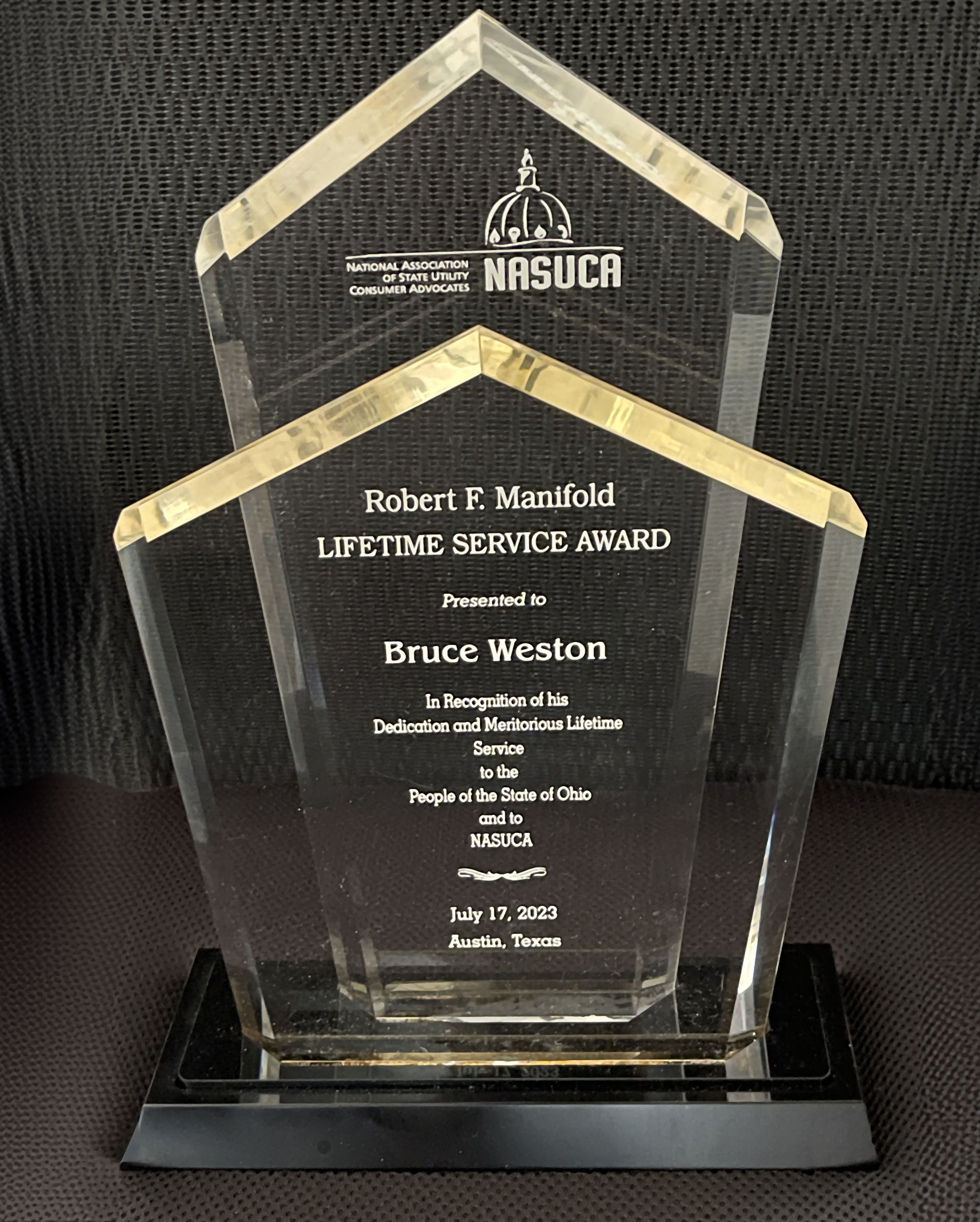
Before
The Ohio Senate
Public Utilities Committee
Testimony on Senate Bill 155
Presented
by
Bruce Weston
On Behalf of the
Office of the Ohio Consumers’ Counsel
October 12, 2017
Hello Chair Beagle, Vice-Chair LaRose, Ranking Minority Member Williams, and members of the Committee. Thank you for this opportunity to testify. And I thank the bill sponsors for the opportunity for a dialogue on these issues.
I am the Ohio Consumers’ Counsel, the representative of Ohio residential utility consumers, including the electric consumers affected by Senate Bill 155 (Bill). I respectfully recommend that you protect millions of Ohio electric consumers from paying higher electric bills, by not enacting the Bill. The Bill would result in Ohioans subsidizing two uneconomic power plants – one in Indiana and one in Ohio – that were built in the middle of the last century. These power plants are held in part by utilities or utility affiliates through the Ohio Valley Electric Corporation (OVEC).
Since the Ohio Consumers’ Counsel’s testimony opposing this Bill (by Michael Haugh on June 8, 2017), the U.S. Department of Energy (US DOE) announced it is seeking an expedited national solution regarding operations of coal and nuclear power plants. This federal forum for the US DOE initiative is further reason for the General Assembly to not enact this Bill and the related H.B. 239. (And the US DOE initiative is another reason to not enact the nuclear power plant subsidy bills, H.B. 178 and S.B. 128.) Ohioans should not be asked to pay on a single-state basis for a solution for these uneconomic power plants. Instead, this subsidy issue should be debated at the national level (US DOE and the Federal Energy Regulatory Commission) or regional level, where it will involve consumers across multiple states.
Also, another reason for the General Assembly to not act now is that AEP has already succeeded at the PUCO in making its million consumers pay for its share of OVEC plants. And other utilities (Dayton Power & Light and Duke) have proposals for consumer charges pending at the PUCO, similar to what AEP was authorized for OVEC charges. It likely would be at least a couple years before there is a ruling on appeals at the Supreme Court of Ohio that potentially could end these charges (consistent with the intention of Ohio’s 1999 deregulation law for subsidies to end and the competitive market to determine prices). Further, the “caps” (Bill lines 1039-1053) on charges to consumers do not justify enacting the Bill. In actuality, the caps do not limit the total amount that utilities could make customers pay, because any uncollected amounts that would exceed the cap can be deferred and collected later from customers. In essence, the utilities could use the caps as a pay-me-now and pay-me-later approach to charging consumers.
The better approach to electricity pricing is House Bill 247, which would give Ohioans the benefit of competitive pricing from power plants without paying subsidies to utilities. And H.B. 247 would enable utility refunds to consumers (presently denied) when the Supreme Court of Ohio or other authorities invalidate PUCO-authorized rates. That refund provision is particularly relevant here, where the PUCO has already allowed AEP to charge its million consumers for OVEC power plant subsidies. The potential for consumer protection on appeal of the PUCO’s order could be limited if refunds are not allowed in the event the Supreme Court of Ohio were to reverse the PUCO’s order allowing subsidies for OVEC plants.
In conclusion, please do not enact this legislation that would increase the electric bills of hard-working Ohioans. Let’s make lower electric generation bills the “new normal” for Ohio families and businesses. That would fulfill the vision for power plant competition in the General Assembly’s 1999 deregulation law, where subsidies were to end and the electric utility “shall be fully on its own in the competitive market.” (O.R.C. 4928.38) Again, I thank the Committee and the Bill sponsors for this opportunity to discuss utility consumer issues that affect millions of Ohioans.

